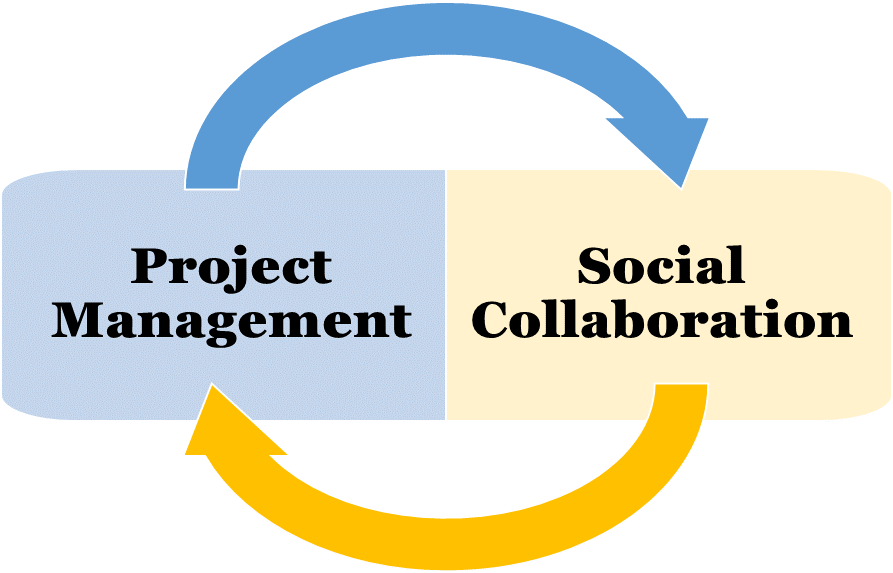It is hard to count the times I have been asked, “what is the best project management software?” with the implied belief that the right software will ensure project success. Project Management (PM) software is a very powerful tool helping to manage the team’s tasks, to manage changes, and to monitor the progress towards deliverables. The key idea here is tool.
A project manager should be able to determine what type of software tool they need, and/or the features within an existing tool, to support the work. Project managers can spend a lot of time reviewing software options, however, they should have some understanding about how the tool is going to be used. PM Software that is not needed for a specific project or task may be considered nice-to-have, but it won’t lead to success on its own.
The critical point here is that PMs need to use the software in a way that supports their work.
On this page:

Do You Even Need Project Management Software?
 In Project Manager presentations and conferences there is often a reaction of disbelief when I state that you can actually complete projects without formal PM software. To prove the point, I share examples such as in Steve Voegl’s book, The Pentagon: A History, in which he shares the 1941 story of incredible planning and work behind the construction an internationally known landmark. The leaders used a combination of people skills and technical knowledge to guide the complicated work, not software.
In Project Manager presentations and conferences there is often a reaction of disbelief when I state that you can actually complete projects without formal PM software. To prove the point, I share examples such as in Steve Voegl’s book, The Pentagon: A History, in which he shares the 1941 story of incredible planning and work behind the construction an internationally known landmark. The leaders used a combination of people skills and technical knowledge to guide the complicated work, not software.
Interestingly, international research firm Gartner’s Use Social Tools to Manage Projects Without Project Management research shows a trend away from PM software and towards social collaboration tools. Employees leverage the software they use daily, Slack for example, to “…facilitate the requirements of single place and collaboration, but do so in ways that employees have already adopted…”
It is important to note that it is the type of work and the team collaboration that drives the software choice. Again, no one software will guarantee project success. Software is meant to increase your efficiency. The type of work and the team collaboration should drive your software choice. Of course, there is no one program that will guarantee project success; however, it’s important to pick a system with features tailored for what you need!
What to Consider When Selecting Project Management Software
Rather than Google search “project management software” and hoping it works out, identify the key features you need based on: type of project management in use (Waterfall, Agile, Disciplined Agile), size of the team, the available software budget, the ramp up or training to use the software, type of project work (IT, software, creative, manufacturing, etc.), and team collaboration needs. Consider functionality such as:
|
Analytics |
Document Management |
Mobile capabilities |
|
Project Management |
Portfolio Management |
Time Tracking |
|
Notifications |
Resource and Skill Matching |
Resource Forecasting |
|
Scheduling |
Reporting |
Budgeting |
|
Project, Task, Resource Views |
Workflow Status |
Progress / Status Tracking |
Use software review sites to help narrow in on which software would address your needs.
- Technology Advice: Project Management
- Project Management.com Top 10 Project Management Software
- PC Magazines Best PM Software
The PM software should support your work. As Project Manager Ralph Kliem shares in his PMI.org article “Project Management Software: Friend or Foe?”, it is not what software you use that will get you to success, it is how you use it to plan, organize, control, and lead a project that matters.
Training For PM Software
 One of the most widely used PM software is Microsoft Project. For many, that is the software they are required to use by their company. If you know Waterfall methodology, then Microsoft Project will have familiar terms and features. Given the levels of features it has, and the variety of ways different project managers and organizations use combinations of those features, it is very helpful to complete a Microsoft Project training so that you can design and create new project schedules; work with tasks, resources, and project information; and customize project views, tables and filters.
One of the most widely used PM software is Microsoft Project. For many, that is the software they are required to use by their company. If you know Waterfall methodology, then Microsoft Project will have familiar terms and features. Given the levels of features it has, and the variety of ways different project managers and organizations use combinations of those features, it is very helpful to complete a Microsoft Project training so that you can design and create new project schedules; work with tasks, resources, and project information; and customize project views, tables and filters.
Studying for the PMP Exam?
PM Software: Make It Work For you
Successful project managers have a combination of skills that can be bolstered by software but not replaced by it. No software will build trust among the team, maintain your client relationship, or help you negotiate changes in budget, schedule, or deliverables. However, using PM software wisely and to fit the type of environment in which you are working, can increase your project’s success. PM software is used to track and create more efficiencies in your projects.
Upcoming PMP Certification Training – Live & Online Classes
| Name | Date | Place |


 New Horizons
New Horizons
 Project Management Academy
Project Management Academy
 Six Sigma Online
Six Sigma Online
 TCM Security
TCM Security
 TRACOM
TRACOM
 Velopi
Velopi
 Watermark Learning
Watermark Learning
 Login
Login




 New Horizons
New Horizons
 Project Management Academy
Project Management Academy
 Velopi
Velopi
 Six Sigma Online
Six Sigma Online
 TCM Security
TCM Security
 TRACOM
TRACOM
 Watermark Learning
Watermark Learning